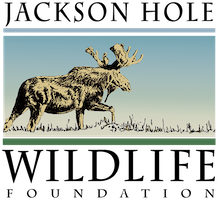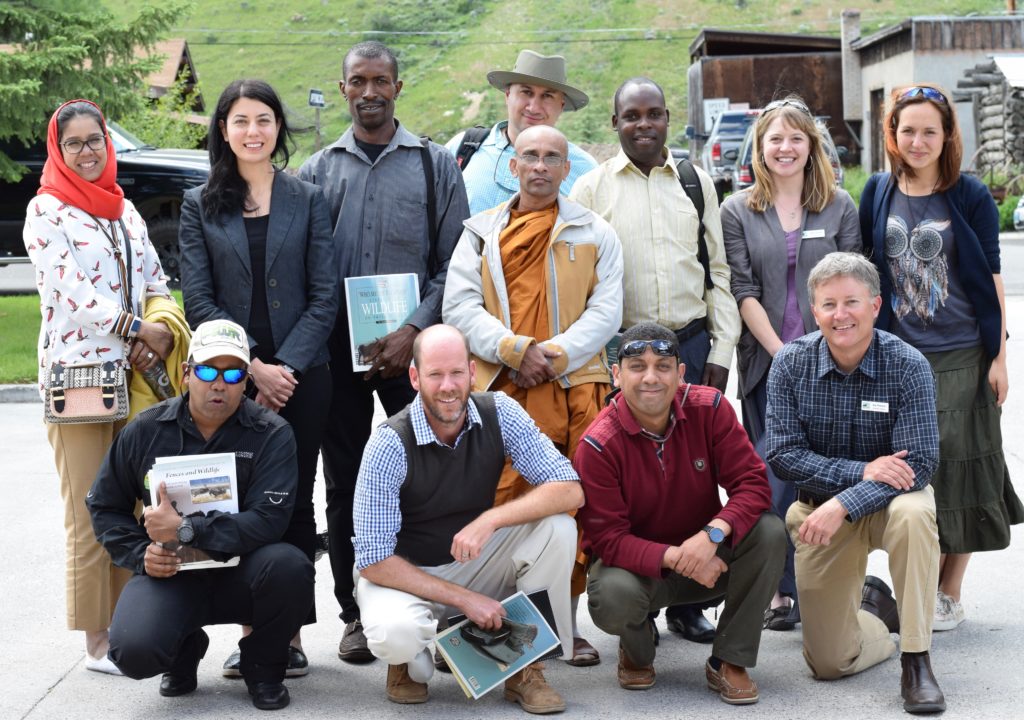In June, JHWF was visited by a group of conservation professionals from Argentina, Russia, Iran, Sierra Leone, Malaysia, South Africa, Morocco, Sri Lanka, Oman and Zimbabwe. This group was supported by the International Visitor Leadership Program of the U.S. Department of State and hosted by our friends at the Wyoming Council for International Visitors.
Traveling with the objective of assessing U.S. efforts to protect biodiversity, JHWF was pleased to spend an hour with our new colleagues talking about wildlife-friendly communities. There was great interest in learning more about the citizen science effort throughout the valley and how the Nature Mapping program was designed. Citizen science is not (yet) a strong practice in many other countries, but there is growing interest to engage the public in conservation science. We said that one of the keys to launching a successful citizen science effort is to have a “champion,” such as the admired and beloved Bert Raynes, to inspire an initial following.
A visiting biologist from Morocco inquired about the bluebird nest boxes he observed along the Elk Refuge fence. “I noticed more tree swallows than bluebirds as we drove into town,” he said. His observation concurred with our findings in recent weeks, as many of the Mountain Bluebirds and their fledglings had left the boxes, though a few remain. While we delighted in the fact that nearly every representative expressed interest in introducing a variation of Nature Mapping in their country, we also couldn’t help but recognize the common joy we all derive from our interactions with wildlife – a universal bond.
It was an interesting discussion comparing and contrasting our conservation challenges and subsequent efforts around the world. While our working contexts might differ in terms of political, social and economic influences, a consistent thought existed amongst our diverse group – the belief that by removing or reducing barriers we humans have created (obsolete barbed wire fencing, for example), we can moderate our impact on wildlife and live more compatibly within a healthy environment that sustains all life.

